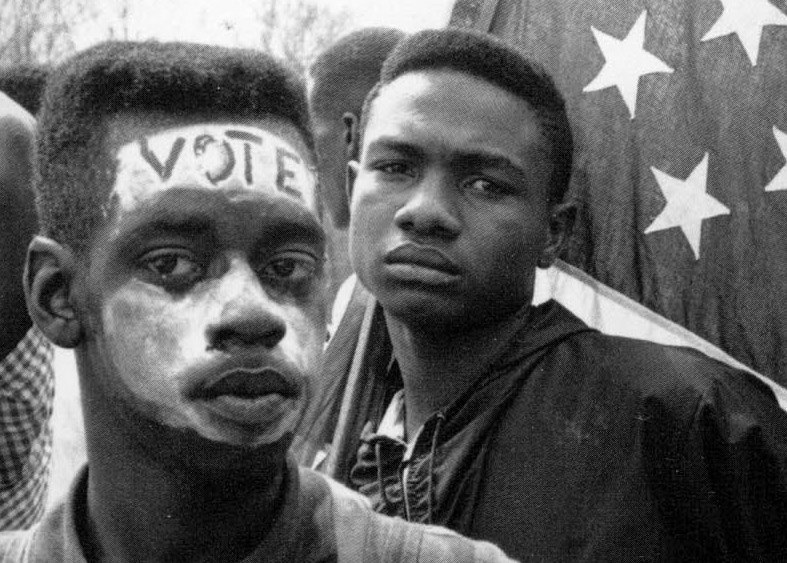SUFFRAGE AND CIVIL RIGHTS
The 15th Amendment declared that the right to vote cannot be denied on account of race. Nevertheless, a variety of tactics were used in southern States to disenfranchise African Americans. The Supreme Court struck down a number of these efforts, and, beginning in the 1950s, Congress passed laws to protect minority voting rights.





